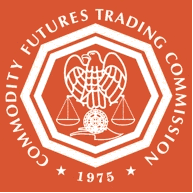CFTC Targets Cybersecurity and Environmental Fraud

Last week, the Commodity Futures Trading Commission (CFTC) announced the creation of two new task forces. One is the Cybersecurity and Emerging Technologies Task Force, to address fraud relating to cybersecurity and other emerging technologies. The other is the Environmental Fraud Task Force, to go after environmental fraud and misconduct in derivatives and relevant spot markets. The CFTC is the federal agency charged with enforcing the Commodities Exchange Act, which regulates the trading of commodity futures.
According to the CFTC, here are some of the key subject areas the Cybersecurity Task Force hopes to cover:
- Ensuring registrants have sufficient cybersecurity controls, including controls for the protection of customer information.
- Prosecuting hacks/exploits/and account intrusions performed for the purpose of manipulating commodities markets.
- Prosecuting technology-enabled thefts of material non-public information.
- Exploring the role emerging technologies like artificial intelligence and machine learning may play in violations of the Commodity Exchange Act.
- Ensuring registrants adequately supervise their use of emerging technologies.
With the Environmental Fraud Task Force, the CFTC will target fraud and misconduct in regulated derivatives markets and the relevant spot markets concerning claimed efforts to address climate change and other environmental risks. As a key example, the CFTC specifically called out fraud relating to claimed environmental benefits of purchased carbon credits and material misrepresentations regarding ESG products or strategies.
In announcing the new task forces, CFTC Chair Rostin Behnam highlighted the reason for the agency’s newly invigorated areas of focus:
Recent events that directly impacted derivatives markets highlight the concerns that cybersecurity breaches raise in our markets. Meanwhile, as more firms tout their environmental credentials and as voluntary carbon markets grow, there exists the potential for fraud and manipulation. The creation of these two task forces demonstrates the vigorous and forward-looking approach the CFTC will take to address misconduct in these critical areas.
For Director of Enforcement Ian McGinley, the agency’s focus in these areas was a bit more personal: “When I was a federal prosecutor leading a unit focused on complex frauds and cybercrime, I saw firsthand the growth of cyberattacks, cyber-enabled financial fraud, and environmental fraud. These new task forces will address these vital topics that will only increase in importance in the future.”
And of course, the CFTC is hoping to get a lift from whistleblowers with information of fraud or misconduct in these newly targeted areas. Under the CFTC Whistleblower Program, those who voluntarily provide information that leads to a successful enforcement action can receive up to 30 percent of the government’s recovery. Last year was a record-setting year for the program, including a $200 million blockbuster award to the whistleblower who provided information relating to the Deutsche Bank LIBOR-rigging enforcement action.
Recognizing the critical role whistleblowers play in supplementing the CFTC’s limited resources, a week before announcing the new task forces the agency put out a special Whistleblower Alert, specifically calling for help in identifying fraud or manipulation in the carbon markets. In doing so, it dangled the roughly $330 million in whistleblower awards it has made under the program to date. Like the SEC with its incredibly successful whistleblower program, the CFTC has not shied away from showing its warm embrace for whistleblowers.
So if you have information concerning potential misconduct in the commodities markets — relating to cybersecurity, artificial intelligence, ESG issues, or otherwise — the CFTC is waiting for your call. If you would like to speak to an experienced member of the Constantine Cannon whistleblower lawyer team to learn more about what it means to be a CFTC whistleblower, or a whistleblower under any of the government’s other whistleblower rewards programs, please do not hesitate to contact us for a free and confidential consult.
Read More
- CFTC Whistleblower Program
- Environmental Whistleblowers
- Archived Cybersecurity and Data Breaches Posts
- Contact Us Confidentially
Tagged in: Cybersecurity and Data Breaches, Environmental Fraud, Fraud in CFTC-Regulated Markets, Whistleblower Eligibility,